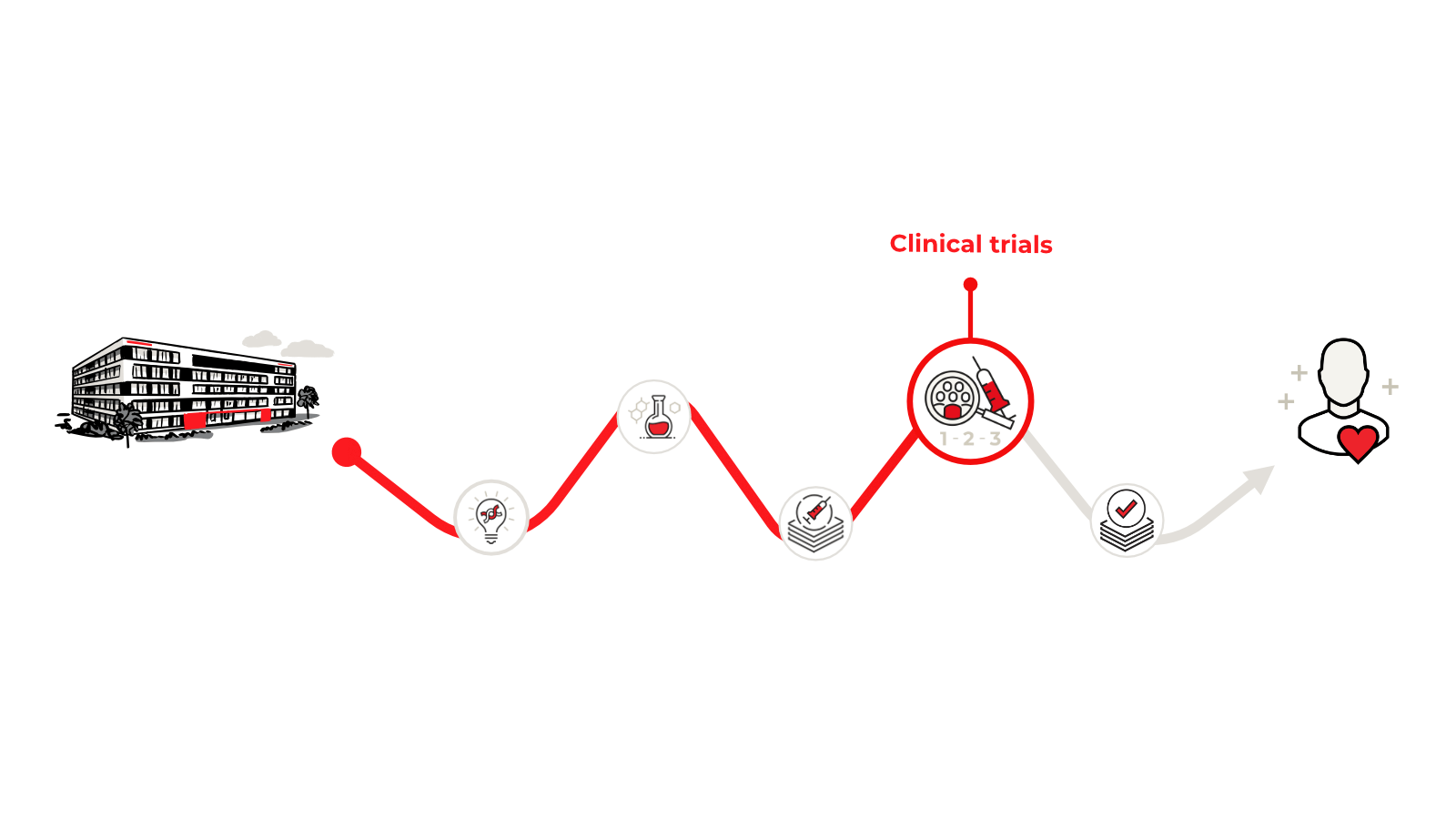"Whether the test drug should next be administered to a human being for the first time as part of a so-called clinical trial will be discussed and decided by an internal committee, which will once again closely examine all the findings and data available to date," says Martin Broder.
"After a positive panel decision, various clinical trials are conducted with subjects or patients to determine, among other things, whether the test drug works as desired, whether it behaves as expected in the body, which dose is most effective, and whether it does not cause any previously unknown side effects," explains Agnieszka Turowska. In her role as Clinical Program Manager at CSL, she oversees clinical trials and procedures and ensures that medical procedures comply with strict legal and internal safety protocols and guidelines.
Clinical trials are carefully designed research studies with volunteer healthy or diseased participants in which the efficacy, tolerability and safety of the test drug are put under the microscope according to predefined, strict criteria.
Video: "What are clinical trials" / clinical trials website
Before a clinical trial can begin, a thorough review of all relevant study documents takes place by the responsible health authorities, such as the Paul Ehrlich Institute (PEI) in Germany, and only after approval by the responsible authority and a positive evaluation by the responsible ethics committee can a clinical trial begin.
" Following a positive committee decision, various clinical trials are carried out with test subjects or patients to determine, among other things, whether the test drug works as desired, whether it behaves as expected in the body, which dose is most effective and whether it does not cause any previously unknown side effects. "
Agnieszka Turowska, Clinical Program Manager


